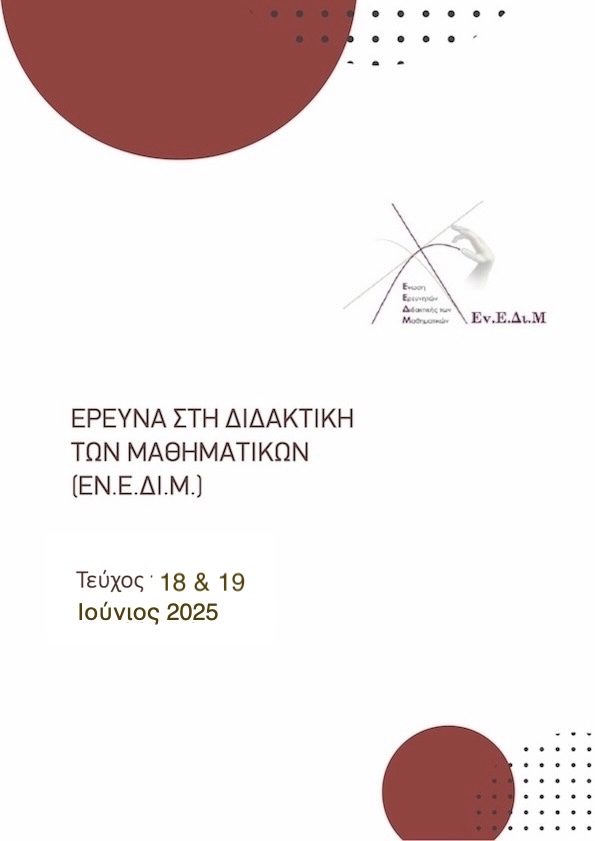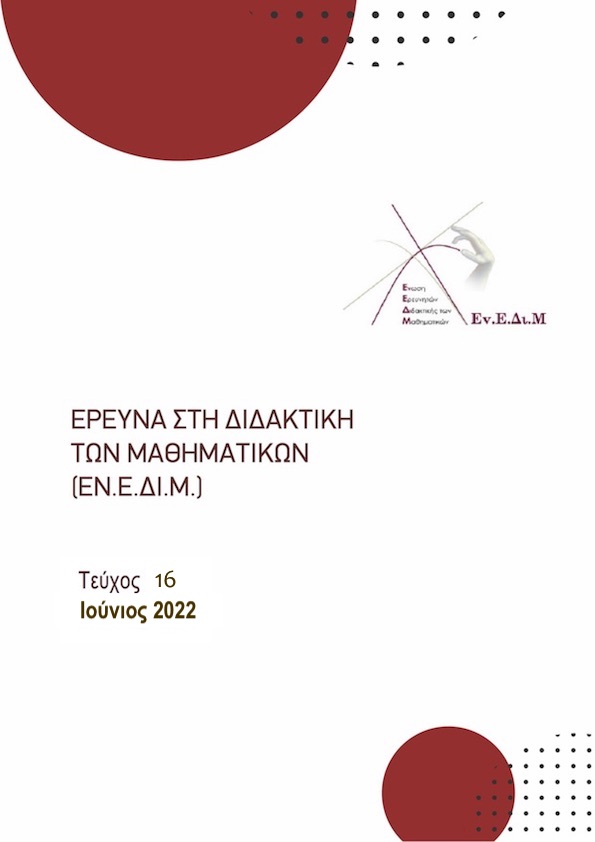ΜΑΘΗΣΗ ΚΑΙ ΔΙΔΑΣΚΑΛΙΑ ΤΩΝ ΣΤΟΧΑΣΤΙΚΩΝ ΜΑΘΗΜΑΤΙΚΩΝ ΣΤΙΣ ΠΡΩΤΕΣ ΤΑΞΕΙΣ ΤΟΥ ΔΗΜΟΤΙΚΟΥ ΣΧΟΛΕΙΟΥ
Resumen
Η παρούσα εργασία συγκεντρώνει τις κατευθύνσεις του νέου Προγράμματος Σπουδών σχετικά με τα στοχαστικά μαθηματικά, για τις πρώτες τάξεις του Δημοτικού σχολείου. Αφού σκιαγραφηθεί το περιεχόμενο των στατιστικών εννοιών και διαδικασιών με τις οποίες προτείνεται να ασχοληθούν οι νεαροί μαθητές, παρατίθενται ενδεικτικά ερευνητικά πορίσματα της τελευταίας δεκαετίας αναφορικά με την εργασία των μαθητών πεδίο αυτό. Τέλος, συγκεντρώνονται διδακτικές πρακτικές και προτάσεις που έχουν αναδυθεί ως ωφέλιμες για τη διδασκαλία συναφών με το Πρόγραμμα Σπουδών στοχαστικών ζητημάτων, από έρευνες στο πεδίο της στατιστικής επαίδευσης.
Article Details
- Cómo citar
-
Σαπλαμίδου Σ., & Σακονίδης Χ. (2025). ΜΑΘΗΣΗ ΚΑΙ ΔΙΔΑΣΚΑΛΙΑ ΤΩΝ ΣΤΟΧΑΣΤΙΚΩΝ ΜΑΘΗΜΑΤΙΚΩΝ ΣΤΙΣ ΠΡΩΤΕΣ ΤΑΞΕΙΣ ΤΟΥ ΔΗΜΟΤΙΚΟΥ ΣΧΟΛΕΙΟΥ. Έρευνα στη Διδακτική των Μαθηματικών, (18 & 19), 27–49. Recuperado a partir de https://ejournals.epublishing.ekt.gr/index.php/enedim/article/view/38534
- Sección
- Άρθρα

Esta obra está bajo una licencia internacional Creative Commons Atribución 4.0.
Οι συγγραφείς των άρθρων που δημοσιεύονται στο περιοδικό διατηρούν τα δικαιώματα πνευματικής ιδιοκτησίας επί των άρθρων τους, δίνοντας στο περιοδικό το δικαίωμα της πρώτης δημοσίευσης. Άρθρα που δημοσιεύονται στο περιοδικό διατίθενται με άδεια Creative Commons BY και σύμφωνα με την άδεια μπορούν να χρησιμοποιούνται ελεύθερα, με αναφορά στο/στη συγγραφέα και στην πρώτη δημοσίευση.



